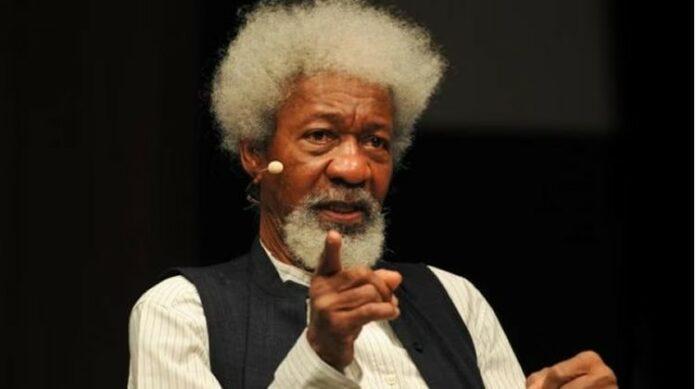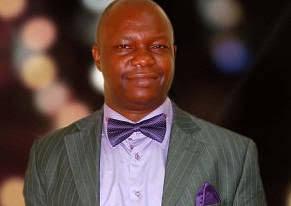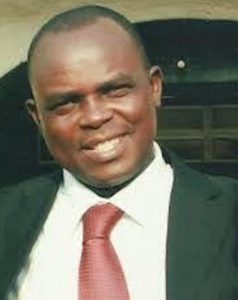By Festus Adedayo
(Published by the Nigerian Tribune, April 9, 2023)
Kongi, Nigeria’s Nobel Laureate, a deity before whom many Nigerians tether goats, sprinkle oil, pour libations and offer ekuru of appeasement, is going through ferment. It is a period comparable to that low moment which, the Yoruba say, when big misfortunes wrestle one down, smaller travails defecate into one’s mouth – Ti iya nla ba gbe’ni san’le, kekeke a ma g’ori eni. In an elegy to Adegoke Adelabu who died in a 1958 road crash, his NCNC political party bard, Ilorin, Kwara State-born Odolaye Aremu, narrated his sudden death and the emergence of voices of diatribes against this Oluyole petrel and the sorry fate that bedeviled him posthumously more brilliantly. Awon osa kekeke wa nsope Sango o ponmo’re – Smaller gods with less vibes and lesser grits, on account of his misfortune, now clamber on Sango, god of thunder, lord of the storms, commander of lightning. As they mocked him, they claimed that this god, feared at home and in villages, lacked the bravura of a god. This was the fate of Sango as he walked to Koso, where he was believed to have committed suicide.
Rather than enter into the anti-climax which Odolaye, the poet, went into by cursing these voices of dissent – Olohun o dajo, ile o yan’ka! – this piece will seek to study the Kongi’s unraveling.
Only puerile revisionists will fail to give Soyinka his rightful worth in the politico-historical development of Nigeria. He earned his badge as a General among crusaders for a just society. Aside being a playwright, novelist, poet and essayist, Soyinka became the first sub-Sahara African to be conferred a Nobel for his “wide cultural perspective and with poetic overtones fashioning the drama of existence.” Like his cousins, the Ransom-Kutis of Abeokuta, Soyinka is weird, iconoclastic and a certified non-conformist. In the 1960s, Soyinka transited from being a man of the theatre and literature into taking active role in Nigeria’s political history. Indeed, he played a sizeable part in Nigeria’s campaign for independence from colonial rule, most of which was done through the vehicle of literature and the activism of the theatre.
In 1965, however, Soyinka sidestepped theory into praxis by seizing the Western Nigeria Broadcasting Service studio, from where he broadcast a call for the cancellation of the Western Nigeria Regional Elections. He wasn’t done. Upon being discharged of this allegation in court, he followed this path. When it was becoming clear that the Nigerian civil war was looming, coming immediately after being conferred with the Chair of Drama at the University of Ibadan where he taught, Soyinka’s political activism became more noticeable. After the January 1966 coup, Soyinka surreptitiously and unofficially held a meeting with Odumegwu Ojukwu, who was the military governor of the Eastern State in Enugu in August, 1967, with a view to averting the war. The military government of Yakubu Gowon interpreted this to be an affront and set out dragnets to arrest the theatre teacher. At long last, the Gowon government got him arrested and locked him in solitary confinement for two years. The charge against him was that he volunteered as a non-government mediating actor between Odumegwu’s nascent Biafra and the Federal Government.
In all these and over the years, Soyinka had been something of a mascot among Nigerians, venerated with the sacredness of a deity. He was almost without blemish, even when those who knew him spoke of his sundry human frailties. For instance, Soyinka is reputed to have had multiple liaisons, marrying three times and getting divorced twice. From the three marriages, he begot eight children and had two other daughters. The first marriage was to late British writer, Barbara Dixon. The two of them had met and fell in love in the 1950s while Soyinka was teaching at the University of Leeds, with Barbara giving him his first son, Olaokun and his daughter, Morenike. In 1963, Soyinka got married again to the librarian, Olaide Idowu and had three daughters – Moremi, Iyetade (deceased), Peyibomi – and a second son, Ilemakin, from her. If you want to know the seismic nature of that marriage, read Soyinka’s memoir, about how Olaide dropped his child by the prison doorpost. In 1989, Soyinka married Folake Doherty, a far younger lady and from that marriage, three sons – Tunlewa, Bojode and Eniara – emerged. Soyinka is also an unapologetic connoisseur of wine.
His heroism notched up when in November, 1994 he fled Nigeria by its border with Benin, to the United States. The dictator, General Sani Abacha, had sought his flesh for barbecue. The playwright fled for his life. Perhaps, if he hadn’t, Abacha would have, like the Fourth Citizen retorted in Shakespearean Julius Caesar about Cinna the poet, had him torn into pieces for his “bad verses.” Soyinka then aligned with Nigerians of similar persuasions to form the anti-military coalition, the National Democratic Coalition (NADECO) which, unarguably, was one of the major planks that birthed democracy of the fourth republic that Nigeria currently enjoys. It was that association which got Soyinka yoked with some characters that many Nigerians see as having defanged the roar of Soyinka the lion. I will paint this canvas presently.

No one can be allowed to mis-plot the graph of Soyinka’s trajectory as a major voice of the voiceless in Nigeria. On several occasions, whether convenient or otherwise, Soyinka had looked autocracy and barbarism in their faces and spat on them. In 1986, when a small embankment separated him from death, Soyinka, John Pepper Clark and Chinua Achebe had paid a plea visit to General Ibrahim Babangida at the Lagos Dodan Barracks to plead with him to spare the life of General Mamman Vatsa, the highly scarified Bida, Niger State-born soldier who also doubled as a poet. Of that plea visit, Clark had written: “He (IBB) duly received us at Dodan Barracks the next day, and was his charming self and all attention. A difficult case, he told us. Some junior officers were the problem, but not to worry. He would take care of it. So we left, walked straight into the arms of the press, and on to a restaurant to toast and treat ourselves to a lunch we all thought we thoroughly deserved. We were still savouring our wine, when that same afternoon, General Domkat Bali, Chief of Defence Staff, came on air, announcing Vatsa and the other accused had already been executed. As a matter of fact, the execution did not take place until well into the night that day.”
Since the beginning of the Fourth Republic, while Soyinka has retained his respectability as a numero uno essayist and laureate, once issues verge on or his reaction is sought on matters that had to do with some of the people with whom he had dalliances with in exile, the Kongi had always fled into a romance with Janus. Being an old boy of Government College, Ibadan which he attended in 1954, mum was the word from him when a fellow NADECO fugitive, Bola Tinubu’s claimed attendance of his alma-mater became a contentious issue in 2000. The inaccessible bottomlessness of the relationship between Soyinka and Tinubu is a known issue in Nigeria. It is a no-go route for Soyinka. If at all he has to make a comment on it, the professor finds a way of obfuscating the issue with so inaccessible a grammar that it becomes a metaphysical dungeon. This has further led people into making allusions to how the Kongi engages in incestuous and adulterous relationship with the Ananias and Sapphiras of Nigerian politics.
For instance, Rotimi Amaechi, who confessed that Soyinka’s literature texts were almost like revered ancient parchment rolls from the gods to him while he was a student of the Rivers State University, invited the Kongi to a dinner. That wining and dining session later became a huge scandal. Upon Amaechi’s exit from government, the Rivers State Information Commissioner, Dr Austin Tam-George, claimed that the state government spent a whopping sum of N82million on the dinner, insinuating that the Nobel Laureate received part of the funds in cash. The Nyesom Wike government, through the commissioner, also alleged that, using the Ministry of Information and Communications, the Amaechi government amassed N1.1billion debt on frivolous expenditure. Tam-George said: “I will seek the permission of the Governor to formally write Professor Wole Soyinka, a known supporter of Amaechi, if he received part of the N82million spent on a 3-hour dinner hosted for him by the Amaechi administration.”
Unlike his wont, Soyinka has refused to scythe growing dissention to the presidential election that held in Nigeria in February. In a recent interview he granted the Channels Television, although like many Nigerians, the Nobel Laureate shelled the vice presidential candidate of the Labour Party, Datti Baba-Ahmed. In a later clarification of the interview, he had said, “I denounced the menacing utterances of a Vice-Presidential aspirant as unbecoming. It was a gladiatorial challenge directed at the judiciary and, by implication, the rest of the democratic polity.” To Peter Obi, he said: “It was depressing to watch his lieutenant, a crucially positioned voice of a movement that has ‘broken the mould’, threaten the totality of social existence. Whatever our ideological leaning, is Donald Trump the ideal template for a burgeoning democracy in the nation?” Calling Obi’s supporters fascists, he wrote, in a release he entitled “Media responsibility,’’ last Tuesday, that he had earlier warned the LP flag-bearer on “excesses” of his supporters, otherwise known as ‘Obidients’, stating that, “My rejection of fascism is nothing new. On three occasions, I was able to send a message to Peter Obi that if he lost the election, it would be his followers who lost it for him.”
Trust the group of Rottweilers nurtured to hyena menacing look on the social media, who take it upon themselves to tear every seeming adversarial comments against Peter Obi to shreds, they did not disappoint. They also take on purveyors of such messages. This army fell on the Kongi’s flesh and tore it mercilessly. Those are a bunch of children whose minds are impervious to Nigeria’s history and are dead to the gallantry of our heroes past. The Kongi thereafter became the butt of jokes on the social media, defoliated of the heroics which he carefully cultivated in decades. This army was at its diapers when Soyinka was picking these roses.
The unruly crew on the social media was not alone. It was also an opportunity for those who had put up with the off-putting hypocrisy of Soyinka’s blind eyes to the Bourdillon Overlord’s excesses. It was time to strip the Nobel Laureate of all the noble epithets he had earlier been shawled with. The Kongi then began to receive the back of the tongues of Nigerians. Many believe that, in this latest intervention of his, he was obviously on an amicus-curiae assignment for those who fear that if not tamed, the rumpus of growing global disaffection with what was termed the electoral heist of February 25 may rally global disdain against the election. It is feared that this may remove the rug of legitimacy off the Bourdillon Overlord’s “President-Elect” status. Soyinka, they believe, is on assignment, like the DSS and some other funny characters who are seeking victimhood for the President-Elect. One Ekenedirichukwu said: “Prof Soyinka has refused to answer every question AriseTV asked him. He is such a hypocrite. He is yet to say what Datti Ahmed said that’s wrong or inciting. You are okay with Sowore #Revolutionnow but you have problem with Datti asking for constitution to be followed.” Many of them asked him what the difference was between the gun he pointed at a Newscaster in 1965 and the verbal entreaty of Datti Ahmed.
Nigerian literary giant, Chimamanda Adichie, also wrote an open letter to President Joe Biden, published by the US-based The Atlantic newspaper, entitled Nigeria’s Hollow Democracy. In the piece, Adichie interrogated how Americans congratulate the winner of Nigeria’s February election. She quarreled with American establishment bending over backwards to fawn Tinubu, in the face of the quaint taint of electoral heist that catapulted him into reckoning. “American intelligence surely cannot be so inept. A little homework and they would know what is manifestly obvious to me and so many others: The process was imperiled not by technical shortcomings but by deliberate manipulation,” she said. Son of Late Justice Chukwudi Oputa, Charly Boy, also wondered how Soyinka had become “boy-boy” of tainted politicians.
One of the voices expressing worry at perceived slump of the Soyinka mystique is that of highly respected columnist and social media commentator, Kayode Samuel. He had written: “The Nobel Prize does not confer deity on any of its recipients. If a Nobel Laureate is inconsistent or speaks out of turn, he deserves to be called out. It cannot be an accident that the prime beneficiary of the electoral heist that triggered Datti Ahmed’s outburst happens to be Professor Wole Soyinka’s friend and, some say, benefactor. Let’s leave our worship of any being solely for the Supreme Being, please!”
In another vein, he wrote: “Professor Wole Soyinka, our revered Nobel Laureate attended Government College Ibadan. So did I. A generation separates our days in that great school. But the ideals imparted within its hallowed walls are eternal, crossing all generations. Two lines from our School Song are relevant for the debate now raging over Soyinka’s new politics. The second line of the first stanza says, ‘By order, justice and fair play ruled.’ And the third line of the second stanza goes, ‘By our examples and not by precept.’ Professor Soyinka needs to ask himself some probing questions as to how true he has been to these words. Has he remained on the side of justice and fair play in his recent interventions? And has he shown good example, rather than seeking anchor in empty precepts? My hunch is that his troubles started and that he set himself up for the current uproar the day he chose to align with people who lied about having attended GCI. He needs to retrace his steps back to the more ennobling company of his youth, that exemplif(ies) the ideals imparted to all authentic GCI old boys…”
But not one to shy away from calling a mongrel by its name, the Kongi struck all those who said his Sango lacks the bravura of a god. That reply was however a potpourri of ad-hominem arguments, disparaging the commentators and neglecting to reply to their seemingly water-tight arguments. Among others, he said what was being sired was “a climate of fear” and “the refusal to entertain corrective criticism, even differing perspectives of the same position (which) has become a badge of honour and certificate of commitment. What is at stake, ultimately is – Truth, and at a most elementary level of social regulation: when you are party to a conflict, you do not attempt to intimidate the arbiter, attempt to dictate the outcome, or impugn, without credible cause, his or her neutrality even before hearing has commenced.” He called the Obidents so many unprintable names.
If the truth must be told, though Soyinka, like many other Nigerians, must be shocked at the bewildering irascibility of the Obidient gang on the social media, the Nobel Laureate’s oft decision to lap up every trickle of spittle from Bourdillon is worrisome. Just as Kayode Samuel said, the Kongi is not being called out for taking an unpopular stand. He is being repelled because people know that each time the matter had Bourdillon’s imprimatur as this, his voice is always that of Jacob and the hand, Esau’s. Age and experience should have taught the Kongi, as Yoruba elders counsel, that it is not every forested jungle that the itinerant herbal forager plucks; nor is it every palm tree that the palm-wine tapper taps – gbogbo ewe ko ni ojawe nja; gbogbo ope ko ni onigba ngun. There are some poisonous leaves that are forbidden from being plucked and some palm-trees are havens of lethal vipers. If anyone ignores this time-worn aphorism, they sink into oblivion.


















